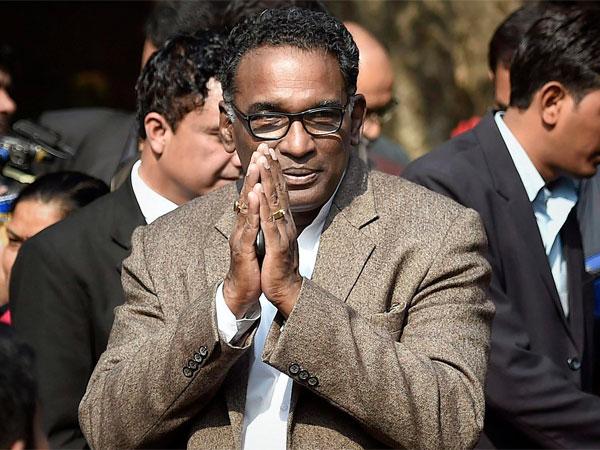The Master of the Roster Wields Immense Power

Image Courtesy: Oneindia
A Division Bench comprising Justice A. K. Sikri and Justice Ashok Bhushan heard the arguments advanced by Senior Counsels Dushyant Dave and Kapil Sibal – appearing for the petitioner Shanti Bhushan, in the Supreme Court today. The Bench told the petitioners that the administrative matters would be determined internally. At this point, the advocates submitted that the current situation is dire, and attempted to submit the issues raised by the Judges’ press conference on January 12. However, the Bench refused to entertain any reference to the press conference and scheduled the matter for hearing on April 27.
The petition had earlier come before a Bench comprising of Justice J. Chelameswar, Justice D. Y. Chandrachud, and Justice A. M. Khanwilkar. Advocate Prashant Bhushan, appearing for the petitioner, lamented that the petition had not been numbered despite following up with the Supreme Court registry. However, Justice Chelameswar refused to hear the petition stating that he did not want another reversal of his order within 24 hours. This was a direct reference to the events that took place in November 2017. On November 9, a Bench comprising of Justice Chelameswar, and Justice S. Abdul Nazeer had passed an Order referring a petition to a larger Bench. The petition, for which the Order was passed, referred to bribery allegations against the Chief Justice of India Dipak Misra. On this basis, Senior Counsel requested that the CJI recuse himself from the hearing as it would constitute a conflict of interest.
On the next day, an urgent hearing of the matter came before a Bench comprising of Chief Justice Dipak Misra, Justice R. K. Agarwal, Justice Arun Mishra, Justice Amitava Roy and Justice A. M. Khanwilkar. The five-Judge Bench annulled the Order passed by Justice Chelameswar and Justice Abdul Nazeer. The bench passed an Order stating that the matter would be heard by an appropriate Bench to be allocated by the Chief Justice of India.
Shanti Bhushan’s petition prayed that the words ‘Chief Justice of India’ would mean a collegium consisting the Chief Justice along with as many senior Judges as necessary. This petition was filed in relation to the position of the Chief Justice as the ‘master of the roster’ in administrative matters. This, the petition argued, would ensure the independence of the judiciary by curtailing any arbitrary use of power by the Chief Justice in allocating cases and constituting Benches. However, this was not the only petition filed in relation to the administrative functioning of the Supreme Court. Ashok Pande, a Lucknow-based lawyer had also filed a petition asking the Supreme Court to pass necessary Orders, on the manner in which Benches are being constituted, and the allocation of the cases. He also prayed that these Orders should be applicable to the High Courts as well.
This petition was admitted by a Bench constituting of Chief Justice Dipak Misra, Justice Chandrachud, and Justice Khanwilkar. However, two days later, the same Bench dismissed this petition. The petitioner had sought that seniority would be the sole criteria in determining Benches. However, the Supreme Court disagreed with this contention stating that it would cast aspersions on the competence of the Judges to hear matters. In examining the Supreme Court Rules, the Court stated that the constitution of Benches and allocation of cases is the sole prerogative of the Chief Justice. The Court then held that there cannot be any presumptions of mistrust on the power wielded by the Chief Justice. However, what is interesting in this instance is that usually when the Supreme Court is a respondent in a matter before it, the Chief Justice recuses himself from hearing it.
The drama in the Supreme Court is not over. Justice Chelameswar has not held back from expressing his displeasure at the current situation in the higher judiciary. However, his refusal to hear the matter—as he did not want his Order to be reversed within 24 hours— points towards a dystopia that exists. On the other hand, by refusing to hear the matter, the petition is most likely to be assigned to a Bench more favourably disposed to the Chief Justice. The issues raised in the petition as well as Justice Chelameswar’s frequent expressions in the public point towards the need for a degree of judicial accountability. The Chief Justice as the master of the roster in administrative matters was evolved to maintain judicial discipline, however, a collegium could be equally viable with the Chief Justice as the casting vote, in solving a deadlock.
Get the latest reports & analysis with people's perspective on Protests, movements & deep analytical videos, discussions of the current affairs in your Telegram app. Subscribe to NewsClick's Telegram channel & get Real-Time updates on stories, as they get published on our website.
























